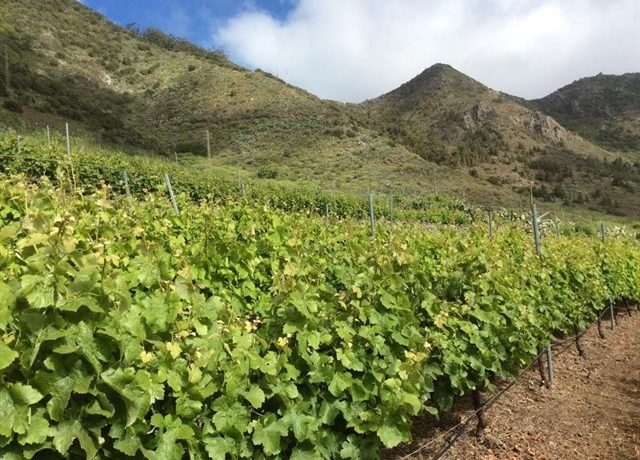Tenerife hosts this week the Spanish Conference of Wine Regulatory Councils (Conferencia Española de Consejos Reguladores del Vino – CECRV), an event that will turn the island into the national capital of wine and whose assembly, which will be held from March 30 to April 1 2017 at the Casa del Vino, will gather to more than fifty experts who will analyze issues related to the sector for three days.
This meeting was presented at a press conference by the vice president of the Cabildo and insular adviser of Agriculture, Livestock and Fisheries, Jesus Morales; The director of the Canarian Institute of Agri-Food Quality (ICCA), José Díaz Flores; The president of the Regulatory Council of the Tacoronte-Acentejo DO, Esteban Reyes, and the manager of this entity, Mari Paz Gil.
Jesús Morales explained that this meeting coincides with the celebration this year of the 25th anniversary of the Appellation of Origin Tacoronte-Acentejo, “germ of wine culture on the island”, which will also provide a “unique” opportunity for experts to know First hand the variety and richness of this wine region.
José Díaz Flores, for his part, indicated that it is a duty for the ICCA to support the wine sector and stressed the work being done by the regulatory councils, as their “many achievements” have allowed the wines of the island to have reached a quality Differentiated. He also stressed the importance of joining these councils, as already happens in the rest of Spain, since “they are guarantors of the quality of our products”.
The president of the Tacoronte-Acentejo DO Regulatory Board, Esteban Reyes, thanked the Cabildo and the Government of the Canary Islands for the development of this congress, adding that it is a “pride” to gather in this meeting the “most granado” from Spain. He also recalled that this is the second time that this conference has been celebrated on the island, the first 25 years ago, and he hopes that the attendees will take the name of Tenerife wines “at the top” nationally.
The manager of this entity, Mari Paz Gil, added that the Spanish Conference of Wine Regulatory Councils will be “a meeting for and for wine”, from the Denomination of Origin Rioja – “capital of wine” – to the Appellation Tacoronte-Acentejo, the smallest of which participate.
The promotion of appellations of origin and quality wine and their normative protection are among the main objectives of this entity, goals to which most of its resources are earmarked.
The CECRV also promotes relations and actions of collaboration with other national and international associations, organizations and entities of the sector, contributing to the configuration of a strategy that allows to reach common objectives that benefit both the interests of the wine world in general as the one of the Denominations of origin in particular.
In addition to the issues relating to vineyards and the quality of wines with appellation of origin, this first meeting of the year of the CECRV will also focus on the agency’s communication policy, an area where the initiative is having a great impact ‘DO wine movement’, especially in social networks.
The Spanish Conference of Wine Regulatory Councils, created two decades ago, is a professional association recognized as an interlocutor of the Administration in matters of quality figures and representing the Denominations of Origin before the Ministry of Agriculture and Fisheries, Food and Environment And to other public and private organizations and institutions with direct or indirect competences related to the world of wine.
The 52 appellations of origin present in the CECRV comprise 111,583 winegrowers – 90.53% of the total winegrowers assigned to the 69 DOs – who own 547,079 hectares of vineyard (95.57% of the total acreage To DO, which represent 57.51% of the 951,200 hectares of vineyards in our country).
The organization is also part of the European Federation of Origin Wines (EFOW) together with the organizations that represent Designations of Origin and Geographical Indications of the rest of the major producing countries of our environment (France, Italy and Portugal).
Courtesy of Europa Press



